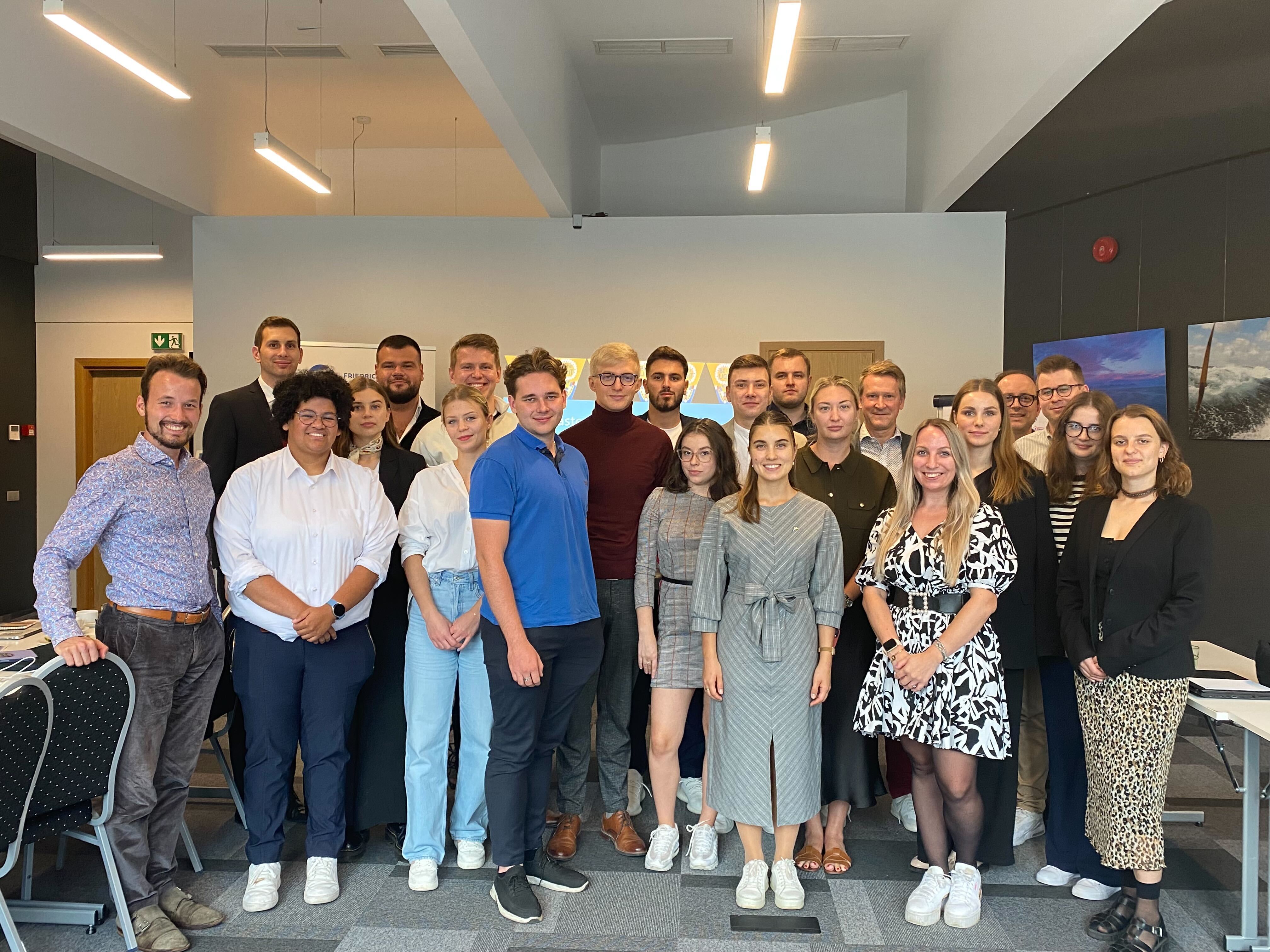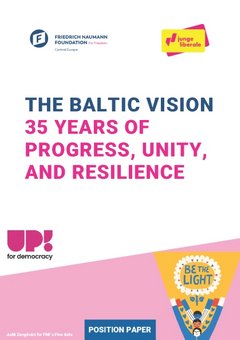POSITION PAPER
The Baltic Vision: 35 Years of Progress, Unity, and Resilience

From September 13th to 15th, the Prague office of the FNF, in cooperation with the JuLis, held the fourth Eastern European Summit in Tallinn, Estonia. There, young liberals from all over Central and Eastern Europe, with the support of experts, worked on policy demands on the issues of Baltic countries’ membership in the European Union, security, Russian regional influence, and sustainable economics. The results were elaborated in a new position paper.
Two decades have passed since the Baltic nations joined the EU, making it a momentous occasion for a timely reflection on the region's journey towards integration and self-determination within the European framework. Additionally, as we commemorate 35 years since the Baltic Way Revolution—a powerful demonstration of solidarity and resilience—we are reminded of the region's enduring quest for sovereignty and self-determination.
Against the backdrop of these historic anniversaries, the discussions extended beyond mere reflection, delving into the pressing issues that define the Baltic region's contemporary reality. Central to the agenda was the imperative of securing sovereignty in the face of external pressures, particularly Russia's assertive regional influence. As geopolitical dynamics continue to evolve, it is essential to fortify the Baltic nations' resilience and autonomy, ensuring that their voices are heard and their interests protected on the international stage.
Furthermore, as the Baltic region faces the dual challenges of environmental sustainability and economic development, fostering sustainable economic models becomes paramount. With Estonia poised to discuss its first climate law in autumn, the conversations delved into the intersection of environmental policy and economic growth, charting a course toward a more sustainable and resilient future for Baltic economies.
Accompanied by liberal experts, the participating youth organisations discussed three main topics: “Reflecting on 20 Years of EU Membership: Achievements, Challenges, and Future Prospects”; “Securing Sovereignty: 35 Years Since the Baltic Way Revolution and Addressing Russia's Regional Influence”; and “Fostering Sustainable Economic Models: Charting the Future of Baltic Economies.” Together they identified common demands, which were discussed in the plenary in the end.
The results of the discussions and expert inputs in Tallinn were compiled in a joint paper. It contains the collective demands of 14 liberal youth organisations across Central and Eastern Europe. We strongly believe that its calls for action are essential in solving the aforementioned challenges.

